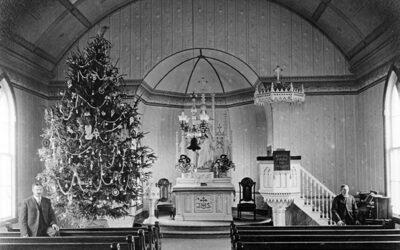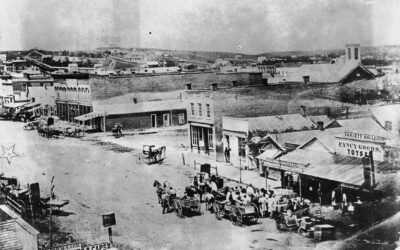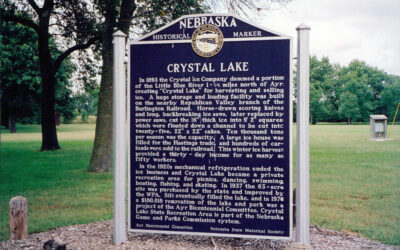“Heavens, How Hot It Was!” exclaimed the Omaha World-Herald on July 27, 1894, describing summer life before air conditioning. Temperatures had reached 108 degrees in Omaha, and its citizens were suffering.
“Down town the sidewalks are like red plowshares beneath a martyr’s feet, and the business blocks seem to be drooping like an accordeon set on end. Brick walls have taken on nerves and stone columns are filled with feeling. Men in the doorways look in a hypnotized way at the empty street cars going past with perspiration steaming from the motor apparatus. The men are trying to find some possible combination as yet unused by them to inform their neighbors that it is the damndest hottest day they have ever experienced.
“In a protesting, patient way horses drag heavy loads over the cracking, sputtering, stewing cobblestones. A tire comes off. The driver, before full-weighted with the heat, is now the wreck of self-possession. You expect him to burst into tears. He ruefully surveys the iron circle and considers. Yesterday he would have tried to put it on again. He would have been assisted by eight times as many willing hands as he needed. He does not want to replace it today, nor is there anybody to help him. When the weather is so hot that crowds do not congregate about a street accident something is wrong with the government.
“Two o’clock. Hotels are deserted. Even bars are lonely. The earlier cry for cream gin fizzes has been hushed, for the terrible truth has at last become known: Cream gin fizzes cannot combat such weather.
“There is a wind blowing. It is like standing on the other side of the street while a five-story paint shop is burning. There was heat enough before. This wind, misguided in its zeal, comes rushing up from Kansas to bring from there and to leave here an extra ten or twelve degrees of heat. . . . This wind knows how to blow around corners. It has corkscrew properties which would carry it where a jimmy and a saw would not be passports. It leaps gladly into your face and blisters your lips. You flee before it, . . .
“It is evening. Is there an evening in the domain of Lucifer? If so this evening was stolen from that region. People eat little supper. . . . [T]hey sprinkle the lawn and try to borrow satisfaction from the brown, parched grass. They rush to Courtland Beach. They climb upon cars. They roll, they swing, they sprawl and they are determined that they will get cool. Watermelons are sent for. Ice cream. ‘Cherry phosphate.’ And all tell that the thermometer was up to 107 and 108, the highest point in twenty years.”



